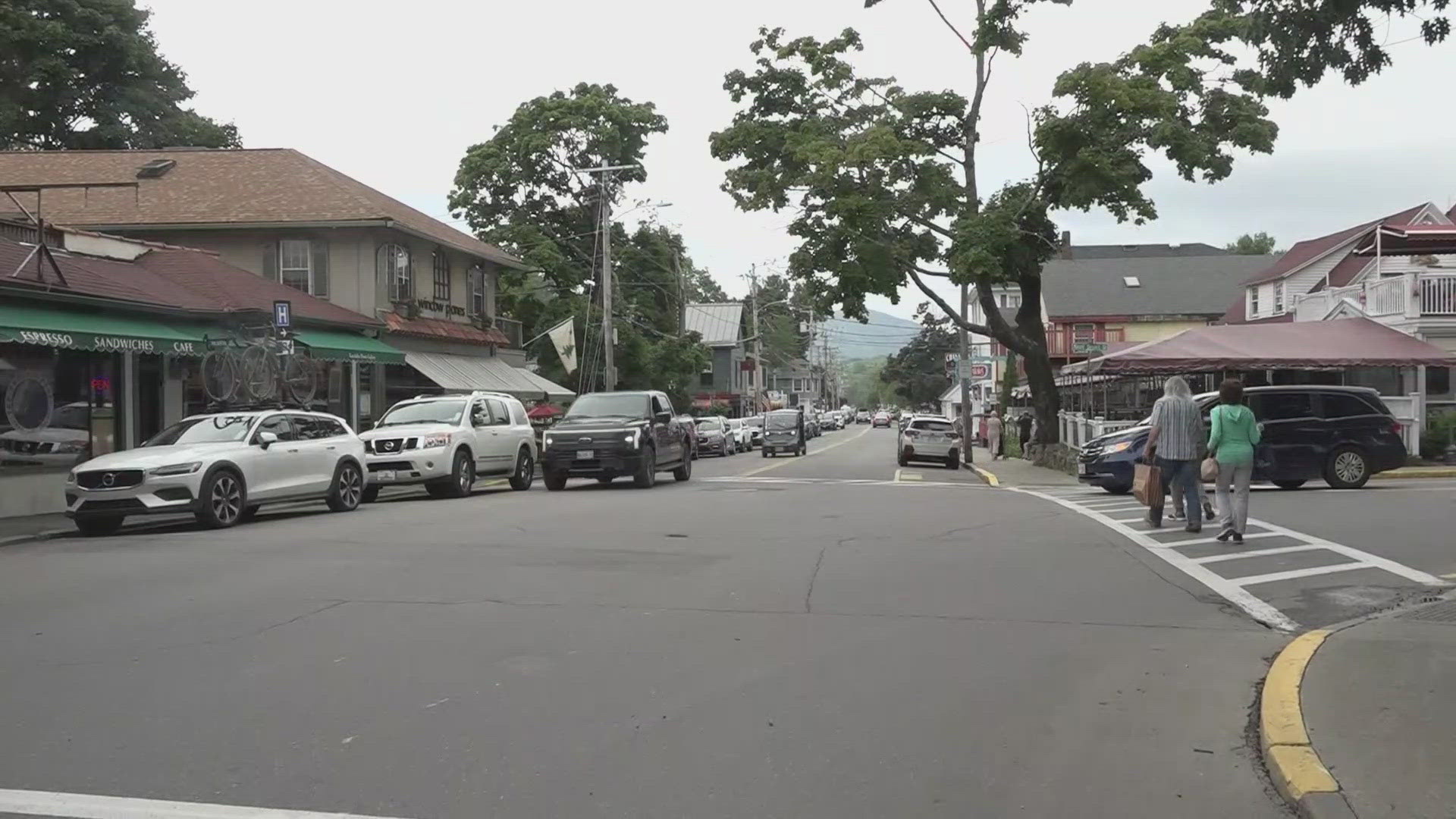BAR HARBOR, Maine — Last July, at the beginning of its fiscal year, Bar Harbor increased its parking fees. The increase nearly doubled their parking revenue, bringing the figure to $3.85 million.
However, town leaders emphasize that money wasn’t their goal.
Before Bar Harbor introduced timed and paid parking, it had free two-hour parking which police would monitor and ticket accordingly. However, the ticket was just $20, and many cars would sit for an entire day, eliminating any turnover.
In 2019, the town put a four-hour limit at $2 an hour on downtown parking. Elsewhere, parking was priced at $1.50 an hour for an unlimited time. The community saw parking spots open back up under this model, according to Captain Christopher Wharff with Bar Harbor Police.
"The theory beyond a paid parking program is it creates that turnover," he said. "By having a four-hour max time limit on the downtown streets and the inner parking lots and charging for parking, it creates that turnover that allows us to have that free space when people come into town."
For fiscal year 2023-24, prices were raised to $2 and $4. The reason is to create a distinction between the two parking zones.
"The rule of thumb goes, it takes a $2 gap to between your outskirts parking and your premium parking to have any incentive effect for people to want to park further in order to pay less," Wharff said.
The additional revenue will go towards maintaining and improving Bar Harbor’s sidewalks and roads, Sarah Gilbert, town finance director, said.
"It does afford the town opportunities to use those funds for capital purchases which is fantastic," she said.
Overall, parking turnover has improved, Gilbert said. Jack Dorfsman and Katie Bergstrom were visiting Bar Harbor and had no problem finding a spot next to the Village Green.
"I think it took about five minutes from when we saw the shops to parking right there," Dorfsman said.
For some businesses, however, the time constraint creates an added complication for clients. John Tierney, owner of Acadia Mountain Guides, says that he'd like to take clients into Acadia National Park via the Island Explorer buses to reduce traffic in the park but can't.
"We can't have them leave cars here because there is no way for them to leave cars here for the duration of our program, which is at least four hours and at most seven hours," Tierney said.
Gilbert said that changes to the current model are not out of the question for coming years.
But until then, she recommends those looking to avoid the fees park at the ferry terminal lot or use the Island Explorer buses to get around. Both are free.

